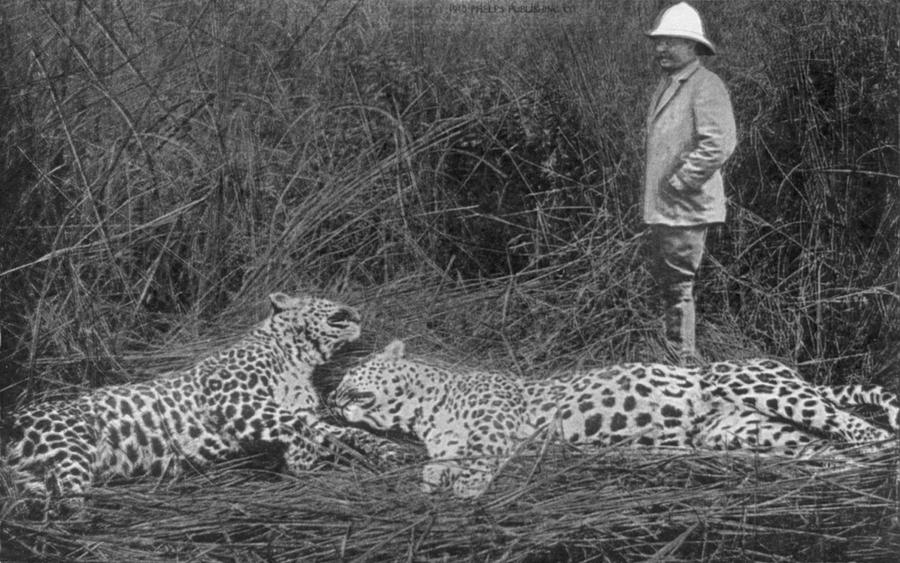Unless you’ve been on the lam for the past week, dodging authorities and seeking asylum from imminent prosecution, you’ve probably heard about the dentist from Minnesota gunning down that famous lion in Zimbabwe, Africa earlier this month. The internet has eaten the story like daily bread since it broke.
And that’s all fine and dandy. The Midwest dentist deserves the endless stream of contempt and mockery that’s coming to him for luring a fan favorite big cat off its preserve and handing it a long, painful death by way of arrows and bullets.
But before you get on your soap box and dole out sanctimonious Facebook comments, ask yourself this question: are you a big Teddy Roosevelt fan? You know, the 26th President of the United States. The “Rough Rider”. The war hero. Medal of Honor recipient. Nobel Peace Prize winner. Trust buster. Namesake of the beloved teddy bear.
Because if you are, you might want to “speak softly” and put down your big stick regarding this whole lion debacle, because the former commander in chief killed loads more big game animals than that cowardly cavity-fixer ever did.
Just take a look at this tally from a 1909 safari to eastern Africa that Teddy and his son Kermit took. They killed 512 animals — and bunch of rare birds that weren’t even mentioned on the list.
Here you go (courtesy of Vox and the 1910 book African Game Trails; An Account of the African Wanderings of an American Hunter-Naturalist):
Together, the father and son duo bagged 17 lions … in just this one trip.
Interestingly enough, despite killing all of these animals, Roosevelt was hailed for decades to come as a conservationist. Which, in some way, is true. Many of the specimens wound up as taxidermy exhibits for the Smithsonian.
It led to education, sure, but that doesn’t mean that he and his boy didn’t get their jollies from shooting down magnificent, exotic creatures in their natural habitat. Oh no.
Take this little morsel (from the Vox article as well):
As he crept after game, he wrote that “it made our veins thrill.” At one point, he even praised elephant poachers, writing that few careers are “more adventurous, or more fraught with more peril.”
One question, however, remains — did any of the animals have a name?
"I'll be a dentist. Then they'll love me." "We're terrified of dentists." "I'll kill a lion!" "It was a beloved lion with a name." "Dammit."
— Kumail Nanjiani (@kumailn) July 28, 2015





































